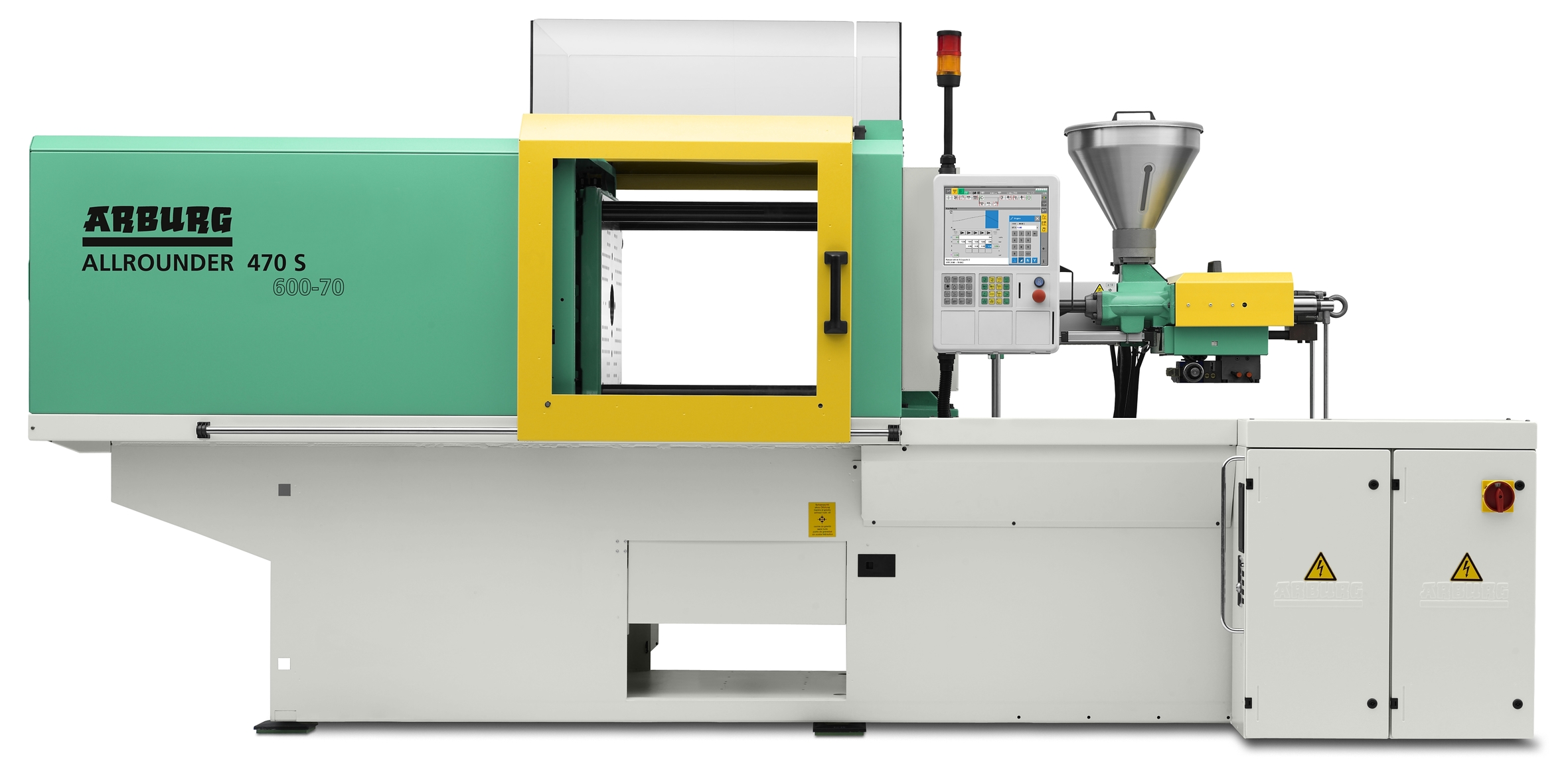Arburg at World PM2016: New powder injection molding trends

|
|
At World PM2016, Arburg will put on display a hydraulic Allrounder 470 S machine to show how housings for smartphones can be PIM-produced cost-efficiently. |
The forthcoming World PM2016 Congress and Exhibition (October 9…13, Hamburg, Germany) will see Arburg highlighting cost-efficient manufacture of smartphone housings at booth 129. This powder injection molding (PIM) application, developed in partnership with BASF, will be demonstrated on a hydraulic Allrounder 470 S machine. The process increases cost effectiveness and production efficiency compared to traditional machining. Jointly with that, Christian Knöpfle, Application Technology Consulting at Arburg, will present the results of his thesis on part quality enhancement in metal injection molding (MIM).
An expert on PIM at Arburg, Hartmut Walcher, is positively optimistic: "The booming international smartphone market offers huge potential for powder injection moulding. We are receiving more and more inquiries from this segment at international trade fairs. As a result, we have now established a joint venture with BASF."
A 1,100 kN Allrounder 470 S injection molding machine equipped with a PIM system will demonstrate the manufacture of back housings for smartphones at the Hamburg trade fair. The raw material used for PIM, commonly called feedstock, is here Catamold 17-4 PH supplied by BASF. The mold has a hot runner system and melt temperature control, and is changeable to allow for the production of frames for smartphone housings, closed or 4-part ones.

|
|
Allrounder 470 S will produce green compacts for smartphone back covers by powder injection molding. The mold is changeable to allow for molding smartphone housing frames using the same machine. |
Green compacts for back housings of smartphones will thus be manufactured at the company’s booth with a cycle time of roughly 1 minute. Given the small wall thickness of the components (≈ 1 mm), part warpage is avoided by dynamic temperature control during sintering, keeping part density highly uniform. The temperature has to be controlled dynamically since the thermal conductivity of the feedstock is considerably higher than that of thermoplastics. A linear robot named MULTILIFT SELECT will provide the removal of molded green compacts, handling them with the necessary precaution and putting them on a slide rail.
In parallel to the live PIM show, Arburg’s Christian Knöpfle will reveal his scientific results in the field of quality optimization of MIM parts. The talk will take place at the Technical Session 5 of the World PM2016 Congress (2:00 to 3:40 PM, October 10, 2016). Knöpfle’s report will speak of metal injection molding quality being affected by numerous process parameters such as mold temperature, injection rate, holding pressure, gate geometry and cavity evacuation.
Arburg boasts more than half a century of experience in powder injection molding. The company supplied over 1,000 PIM machines for a wide scope of sectors and tasks, including the production of automotive and IT components, watches, jewelry and dental equipment. Arburg’s knowledge encompasses feedstock preparation, micro-PIM manufacture, integration of cost-effective part assembly and many other aspects of powder injection molding up to complete turnkey systems. An internal PIM lab allows Arburg to test in practice any upstream or downstream phases, including feedstock production, debinding, sintering and analysis of part quality.









